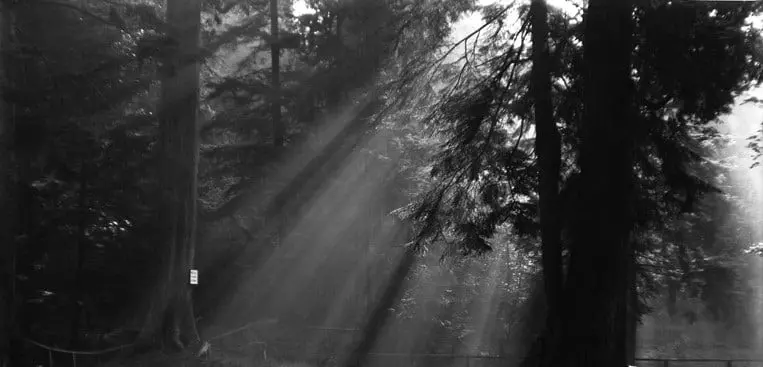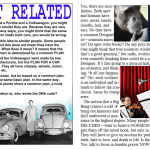[Originally published as The Great Good Thing: A Secular Jew Comes to Faith in Christ]
In a previous post, I discussed Andrew Klavan’s conversion story and mentioned that he had written a book about it. I said I would read and review it when I had the chance. I read it a few weeks ago, but the book requires quite a bit of reflection to review, so I have only now come to the point where I can actually write my thoughts about it. It’s not that the book is hard to understand. It’s that the book is a real mixed bag.
First, let me say that Mr. Klavan is a masterful writer. When you sit back and think about the way that he is expressing his thoughts, you realize what an artist he is with words.
However, what he says varies from shamefully self-indulgent to amazingly profound. There were times I got so annoyed with the self-indulgence that I nearly put the book away, but his flashes of brilliance kept me going. He says that his first draft was nearly twice as long as the final copy and that his wife helped him clean it up. I am glad she did because I don’t think that his flashes of brilliance would have gotten me through nearly twice as many pages!
Now don’t get me wrong. I really am glad that I read the book, and I think that lots of people should read it. I am just warning you that there are times you will roll your eyes and think, “Please don’t give me another detailed account of another memory.”
Of course, I understand the problem. He’s telling you about how he made the dramatic change from a Jewish person who didn’t believe in God to a Jewish person who started following God’s Son. That’s a remarkable change, and it requires a lot of backstory. I just think Mr. Kalvan gives you too much backstory. However, dealing with the backstory is well worth it, because the overall story is both compelling and important.
After a brief introduction, Klavan discusses his childhood. Both his mother and his father were Jewish, but he actually describes his mother as anti-semitic. She was a Jew who hated Jews and wanted to be anything else but a Jew. His father, on the other hand, was very serious about his Jewish heritage and wanted his sons to be as well.
However, as Klavan says, that presented a problem:
My father wanted us, his sons, to know our own people. He wanted us to take their history seriously. He didn’t want us to leave our heritage behind. Which was fair enough, in theory. But in practice, there was a problem…
My parents did not believe in God. For me, this rendered our Jewish observances absurd…
I could see that the magnificent four-thousand-year-old structure of Jewish theology and tradition was, at its core, a kind of language for communicating with the divine presence. Subtract the Almighty and what was the purpose of it? It was just an empty temple… (kindle version, Chapter 3)
This led to a serious moral crisis when he was a young teen. Every Jewish boy has a bar mitzvah at the age of 13. The boy must prepare for this ceremony by learning the proper way to recite (actually “sing”) Scripture in Hebrew so that he could do it as a part of the ceremony. The problem, of course, is that Klavan didn’t believe the Scriptures he was supposed to be singing, so it seemed like an utter waste of time.
After he struggled through the preparation and ceremony, he received all sorts of expensive gifts, and for several months, he was enchanted with them. As time went on, however, he became ashamed by them, because he realized he had accepted them on false pretenses. In the end, he threw them all into the garbage. His description of how he did this, found at the end of Chapter 3, will show the reader why I say that Klavan is a masterful writer.
Since Klavan was raised as a secular Jew, you might wonder how he came to learn about Christianity. The answer surprised me. He had a nanny he dearly loved, Mina, and she was a Christian. She didn’t try to teach him about Jesus, but she did have him over to her house during Christmas. This was his first exposure to Christ. However, as he writes in Chapter 4:
In the end, as I considered my conversion, I thought: No. It wasn’t that night at Mina’s house that made Jesus Christ central to my thinking. It wasn’t that picture on the wall that made his presence pervasive in my imagination. It wasn’t even the Christmases through the following years that made him matter to me so much. It was stories. It was literature. He came to me that way. (emphasis mine)
How did Christ come to him through literature? As a teen, he began to read voraciously and decided to become a writer. In some stories, he was able to notice some Christian imagery because of what little he learned from his nanny during Christmas. As a result, he decided to read the New Testament so that he could spot more Christian imagery. In other words, he decided to read about Christ simply so he could better understand literature.
This reading of the New Testament did not lead to an immediate conversion. However, it did lay the background for five epiphanies that ended up causing him to become a Christian. Once again, if you can get through the periods of self-indulgence, he describes these epiphanies in an amazing way. I will simply list them.
- First, he realized that true suffering exists in everyone’s life, not just his.
- Second, he realized that joy is possible, and it is the source of wisdom.
- Third, he understood that love is real. It isn’t some byproduct of electrical signals in the brain. It is an intangible reality that is wholly separate from biology.
- Fourth, he found that it was possible to have a clear perception of the world.
- Finally, he found that he could learn to laugh, even at the heart of his mourning. He writes:
I had them all now. All the pieces I needed. The five revelations that were really one revelation: the presence of God. (kindle version, Chapter 11, emphasis his)
There was, however, a stumbling block. The Western culture that brought him the literature he loved and the religion that inspired that literature had, in his mind, been a breeding ground for the hatred of the Jewish people. His people. How could this culture and its religion be the source of ultimate truth if they were the source of such intense hatred?
Eventually, he realized that, in fact, the hatred of Jews, which is best exemplified by the Holocaust, is definitive proof that the Bible is true. As he writes:
The Holocaust was the crucifixion compulsively reenacted on a grand scale: an attempt to kill God’s people in order to extinguish the Light of the World that shows us who we are…
There are some people who say that an evil as great as the Holocaust is proof there is no God. But I would say the opposite. The very fact that it is so great an evil, so great that it defies any materialist explanation, implies a spiritual and moral framework that requires God’s existence. More than that. The Holocaust was an evil that only makes sense if the Bible is true, if there is a God, if the Jews are his people, and if we would rather kill him and them than truly know him, and ourselves. (kindle version, Chapter 12, emphasis his)
Perhaps that quote, more than any other I have given, shows you why I think Klavan makes some truly profound statements in his book.







